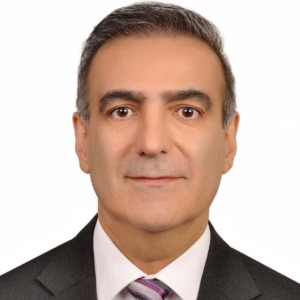Title : Monovision cataract surgery made simple
Abstract:
Background: The demand for presbyopia-correcting IOLs (intraocular lenses) at the time of cataract surgery is increasing. An alternative to implanting these lenses is monovision cataract surgery. Although it has limitations, it may be offered to patients as an option. This is particularly important in public services with financial constraints.
Definition: Monovision is simply defined as using one eye for distance and the other eye for near vision. Monovision is also referred to as Blended Vision. The dominant eye is chosen for distance, and the non-dominant eye for near.
Alternative Options: During history taking and consultation, the ophthalmologist discusses the patient’s needs for daily activities, hobbies, and expectations. If the patient is prepared to wear glasses, then monovision cataract surgery is not indicated. On the other hand, if the patient seeks spectacle independence, options including Trifocal IOL, EDOF IOL, and Monovision IOL are discussed.
Benefits: The advantages of monovision IOLs over Trifocal or EDOF lenses include good contrast sensitivity, lower dysphotopsia, and independence from pupil size. Centralization of IOLs does not affect the outcome. These lenses can be utilized without considering angle kappa measurements.
Limitations: There are several limitations to utilizing the monovision concept: a. As a principle, the non-dominant postoperative UDVA is not as good as the dominant UDVA when the patient compares them after surgery since monovision is designed for this type of vision. This should be highlighted to the patient to avoid disappointment. b. Absolute spectacle independence cannot be guaranteed. The patient may still require backup glasses. c. Stereovision may be affected. This is critical for some patients with occupations such as pilots or surgeons who require good stereo vision.
Preoperative Workup: History taking is the most important component preoperatively. Paying attention to the patient’s needs and expectations for their professional and social life, including hobbies, is an unparalleled strategy for success.
Identifying the dominant and non-dominant eye is important to avoid crossed monovision, which may result in further problems. Extraocular movement assessment and a monovision contact lens trial may be recommended to simulate blended vision. Plus lenses can also be used in the clinic as a guide. Comprehensive slit lamp examination is essential to identify any comorbidities such as age-related macular degeneration and corneal opacities, which affect the outcome in achieving spectacle independence. Astigmatism detection and planning to correct it would be necessary to achieve the best outcome.
Monovision Strategies: Monovision can be planned in different ways: mini-monovision, moderate monovision, and full monovision. This should be tailored according to the patient’s needs and requests. Therefore, it is critical to take a history including occupation, hobbies, and habitual reading and working distances.
Tips for Beginners: The best candidates are patients with no ocular comorbidities and high motivation. If they are already wearing monovision glasses or contact lenses, monovision cataract surgery may suit them best.




